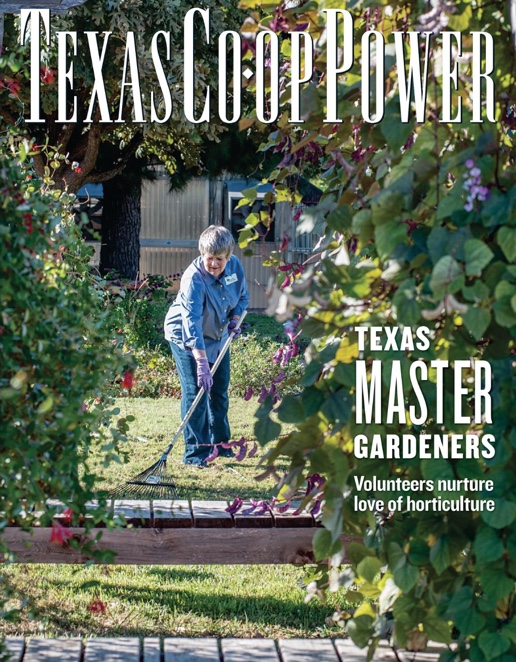United Hosts May Meetings to Keep Members In the Loop And
Learn More About What They Expect From Their Cooperative.
by
JOHN DAVIS
Internet remained a hot topic for the United Cooperative Services members who attended the co-op’s community meeting in Burleson on May 8.
The informal barbecue dinner was the first of this year’s in-person community member outreach meetings for the co-op. The co-op also hosted a focus group with members on May 13 in Stephenville aimed at gathering feedback on its electric service.
Both sessions provided valuable insight into how both longstanding and newer members perceive United’s goal of exceptional service and value.
Internet Report
As questions rolled in about the availability and progress of United’s high-speed internet project, Smallwood began with a short overview of where the project, which initiated in the summer of 2020, currently stands.
-
More than 31,000 subscribers now receive internet service from United.
-
The project is 70 percent complete.
-
Its cost is about $280 million to date.
-
More than 9,000 miles of fiber line have been constructed.
Though the original 2020 estimate for completion was five years, it became clear during the initial buildout that the target of 60 percent fiber-to-the-home in more densely populated areas and 40 percent fixed wireless internet in rural areas would be unrealistic to providing a high-quality experience.
United’s board elected to proceed with supplying fiber-to-the-home throughout service territory, which increased time of completion by about two years, Smallwood said.
“Now, we have an intent, where it makes financial sense, to serve everybody with fiber to the premise,” he said. “We want to make sure that, before we build, we have enough members who are going to use the service before we do it. It would be irresponsible for us to invest an incredible expense in areas only to have a handful of subscribers use it, because that would be a horrible waste of the membership’s dollars to do that.”
Smallwood recommended that attendees check United’s internet sign-up page to see where their community or neighborhood stands regarding user interest.
To reverse low-interest areas, Smallwood suggested attendees should encourage neighbors to sign up or to engage their subdivision’s homeowners associations to book a community internet event with the co-op.
Focusing on Electric Delivery
The Stephenville member focus group was aimed at gathering feedback on United’s electric service. The electric cooperative makes it a continual practice to solicit member feedback and this particular session offered valuable insight into how both longer tenured and newer members perceive United’s commitment to delivering exceptional service and value.
Laying the groundwork for a wide-ranging discussion, Smallwood explained United’s structure and provided a status on where the cooperative stood with regards to the nearly 90 years the co-op has provided electric service to its membership.
Members demonstrated a good grasp of how costs are broken down when reviewing electric bills, with many understanding that about 70 percent of every energy dollar goes toward the cost of wholesale electricity, which is a direct pass-through on the bill with no markup for United.
While some shared concerns about the aftermath of Winter Storm Uri—particularly related to securitization charges—members praised the cooperative for how it handled the event and generally agreed that United’s electric rates are competitive. The majority of the attendees referenced the cooperative’s Rate Watch, which is published in Texas Co-op Power magazine, and provides a transparent look at how United’s rates compare to the state, regional and national electric prices.
Power Supply and the Future
A consistent message emerged with regards to how power supply be handled going forward. Members unanimously shared confidence in, and a desire for, United to continue managing the power supply responsibility, a task its former power supplier Brazos Electric Cooperative was forced to relinquish following its bankruptcy in the aftermath of Winter Storm Uri. The members expressed confidence in United’s ability to negotiate favorable wholesale rates and mitigate the risks associated with third-party providers.
“We trust the co-op to act in our best interest,” one member said during the discussion.
Energy Use, Efficiency, and Innovation
When asked about electricity consumption, the energy-savvy group of members correctly determined that heating and cooling topped the list of electric use (and cost) drivers. Members were also familiar with United’s energy efficiency initiatives, with the majority having had a free energy audit and most having utilized the cooperative’s rebate programs. Interestingly, they acknowledged the unique position United maintains in encouraging members to use less of its own product/service—a testament to its not-for-profit, mission-driven approach to service and value.
A solar energy discussion revealed both interest and hesitation by members. While community solar and buyback rates received positive feedback, members had doubts about rooftop solar, mainly due to cost, aesthetics, and distrust in the wider solar market. United officials wanted the attendees to know that the cooperative sells and installs rooftop solar systems for members and has a number to its credit just in the last year.
Key Takeaways and Next Steps
The focus group reaffirmed members’ faith in United and the cooperative business model as a whole. Moving forward, members want:
-
Clear communication about solar options and return on investment
-
Expanded promotion of energy audits and rebates
-
Continued transparency around billing—especially after crises like Winter Storm Uri
-
Consideration of a mobile app if it offers value
“This focus group showed us that members are eager to stay engaged and have a voice in their cooperative,” Smallwood said. “Our focus will be to ensure members continue to feel heard, informed, and represented at United and that we meet our mission of exceptional service and value.”


